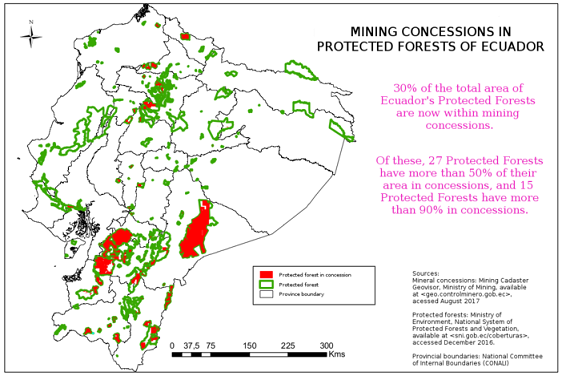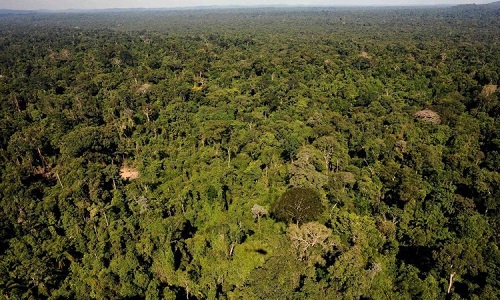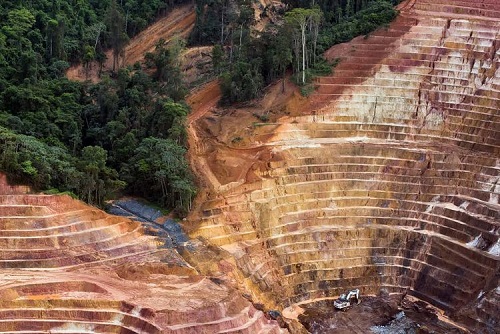The ideology Labour confronts has penetrated so far into our lives, and has been so thoroughly internalised and reproduced, that we have found it difficult to see, or even to name. This ideology is neoliberalism.
Neoliberalism is the doctrine that human society should be defined as a market, its social relations reimagined as commercial transactions, to discover a “natural hierarchy” of winners and losers. Any attempt to limit competition or change social outcomes is treated as hostile to liberty. Trade unions should be crushed, tax and regulation minimised, public services privatised or reconstructed in the image of the market. Inequality is recast as virtuous: a reward for merit and a generator of wealth, which trickles down to enrich everyone. Efforts to create a more equal society, it maintains, are both counterproductive and morally corrosive.
Its assault on the public realm, on collective bargaining, on the redistribution of wealth, on public protection and on society itself has caused or exacerbated the multiple disasters we now suffer. So why does this toxic philosophy still dominate our lives? Principally, I believe, because its opponents have not produced a coherent new narrative with which to replace it. Labour’s renaissance, and the political opening it creates, enables us to tell this story. But it is crucial that we use this moment to create something new, rather than burrowing back into the solutions of the past.
Keynesian economics worked spectacularly during what the French call the trente glorieuses: 1945-1975. But I don’t believe they can take us through the 21st Century, for two main reasons. The first is that global finance discovered how to vitiate them. Its assault on capital controls, fixed foreign exchange rates and a balanced global trading system was highly effective, and has now made the UK’s post-war miracle almost impossible to replicate, within our financially porous borders. Without a radical reversal of the current global order, we are stuck with these constraints.
The second reason is that the economic growth it seeks to sustain runs headlong into the environmental crisis. Sustained economic growth on a planet that is not growing will inevitably crash through environmental limits. This is happening already, in the form of climate breakdown, soil loss (arguably an even more urgent and profound crisis than global warming), mass extinction, pollution and the myriad other assaults upon the world that gives us life. The purpose of economic life should be to deliver universal prosperity and wellbeing. But perpetual growth will eventually beggar us all.
We need a different approach. For many years, people have established their political identity by placing themselves on a linear spectrum, with state at one end and market at the other. If you want more state and less market, you identify with the left; if you want more market and less state, you align with the right. But the economy has four sectors: the state, the market, the household and the commons. The perennial neglect of the latter two has left us dependent on growth and contributed to the defining condition of our age: alienation.
The disregard of the household’s crucial economic role undervalues the work of women. The disregard of the commons shuts down opportunities for social and economic transformation.
A commons consists of three elements: an inalienable resource (it cannot be sold or given away), a community that controls and manages it, and the rules and negotiations developed by that community to ensure that the resource is sustained in perpetuity. The wealth arising from its use is shared equally by the members of the community. (Some cooperatives qualify as commons, though in most cases they differ in both obvious and subtle ways).
What I am about to propose is just one example of how the commons could be revived, with great benefits for prosperity, democracy and community. It is based on a resource that was once held in common almost everywhere, but has since been enclosed and alienated: the land.
At present, the people of most urban boroughs in Britain are exploited, ignored and overridden. We work like ants to pay outrageous rents to people who do not have to work at all, but enrich themselves massively through other people’s labour. The major part of the value of landlords’ property arises from the value of the land, rather than from bricks and mortar. One of the reasons why the land is worth so much is that it is lightly taxed.
The landlords’ economic power translates into political power. When they want to develop their property through gentrification and social cleansing, both residents and councils are almost powerless to resist them. This situation could be transformed – by a government acting in the interests of the many – as follows.
First the government imposes a stiff land value tax on valuable property. Part of the revenue is used, by central and local government, to fund public services. But the residue is returned to communities, that are each encouraged to set up a trust, run by residents, to handle and allocate it. How they use it is up to them, but the government also facilitates their capacity to buy land, through a community right to buy (similar to Scotland’s) and a community right to assemble building sites. The land value tax will already have brought down the price.
The community trust – which could now be described as a common land trust – becomes a property developer. Instead of waiting for commercial or municipal bodies to propose development schemes which might or might not meet their needs, communities can (with the help of professionals) put forward their own proposals. They might, for example, submit a plan for an estate with a high proportion of genuinely affordable homes. People on the housing waiting list, as well as buyers or prospective tenants who put down a deposit, would then have the right to design the estate, together. The opportunity to co-produce it ensures that, even before anyone moves in, community begins to form.
The trust continues to own the land, though it might sell some of the houses or apartments, while letting others. The revenues accrue to the trust. They can be used for a number of purposes: to buy and develop more land, to create or sustain public amenities, or to pay a local citizens’ income. The money that is currently sucked out of the borough (and often out of the country) by landlords now remains with its people.
This is just one example: there are many ways in which the crucial but neglected fourth sector of the economy, the commons, can be recreated. In doing so, a government of the many would help to counter the age of alienation with a Politics of Belonging. Prosperity is delivered without the need for perpetual growth.
It is the commons that anchors community. The difference between this approach and David Cameron’s cynical Big Society is that it is not just responsibility that has been devolved, but power, resources and the wealth arising from them. But crucially, it ignites values – community and belonging – that are shared by people across the political spectrum, and across the Brexit divide.
Through regaining their critical resources, people can genuinely take back control. Less fear, precarity and insecurity allows more generous, inclusive communities to form. Cooperation and mutual aid become the norm. As the work of social psychologists attests, when we perceive that there is such a thing as society – that we have a role, a place and a voice – our dominant values shift away from individualism, selfishness and greed towards mutualism, empathy and altruism. Empowered belonging insulates us against demagoguery. As Hannah Arendt pointed out, it was from the dust of pulverised societies that fascism arose.
Let’s use this once-in-a-generation opportunity to think and work in new ways, and to develop a politics that will carry us through the fraught decades to come.
George Monbiot’s new book is Out of the Wreckage: a new politics for an age of crisis. He is not a member of any political party.
|
ABOUT THE AUTHOR
George Monbiot is a British journalist and critical analyst of human affairs. For more information about this author, visit his
website.
|
Mining Madness in the Amazon
William Laurence
Originally published by
ALERT, 26 September 2017
REPRINTED WITH PERMISSION
Legal and illegal mining is veering out of control in the Amazon — imperiling not just surviving wild-lands but also national parks, protected areas, and indigenous peoples too.
Here, John Seed from the Rainforest Information Centre and ALERT member Philip Fearnside give us a glimpse of the ongoing onslaught in Ecuador and Brazil, respectively.
Ecuador
In Ecuador, Protected Forests (Bosques Protectores) are increasingly being handed over to mining interests, with no environmental research or consultation with indigenous or local communities.
Analyses by John Seed and others indicate that mining concessions now span nearly 3.7 million hectares in Ecuador — an eighth of the national land area, collectively exceeding in size the nation of Japan.

And the mining tsunami is sweeping right into Ecuador’s protected areas.
Overall, 30% of all Protected Forests in Ecuador are now in mining concessions. Of these, 27 Protected Forests will lose over half of their area to mining, and 15 will lose over 90% of their area.
The impacts on biodiversity are frightening. For example, more than 1 million hectares of the best bird habitat in Ecuador — a global hotspot for biodiversity — are now under mining concessions.
This includes Bosque Protector Molleturo Mullopungo, home to dozens of critically endangered species that is now completely covered with mining concessions.

BRAZILIAN AMAZONIA
Miners are also running amok in Brazil, where President Michel Temer and has ‘ruralist’ allies in Congress have seemingly declared war on the environment.
In March, Temer publicly invited international mining corporations to Amazonia.
To tempt big miners, Temer is also opening up the vast RENCA, the national reserve of copper and minerals, for mining development.

(c) Mongabay
Located in northern Amazonia, the RENCA spans an area the size of Switzerland — 4.6 million hectares — is rich with intact native forests, biodiversity, and indigenous peoples.
It contains nine protected areas and two indigenous reserves.
The RENCA was protected by Brazil’s leaders in 1984 to reserve the country’s richest mineral resources from foreign exploiters.
But if Temer has his way, it will soon be open slather for foreign miners, in what one Brazilian senator described as “the biggest attack on the Amazon in 50 years.”
Notably, the Congressional Committee considering legislation to open up the RENCA is receiving massive campaign contributions from Vale, one of the world’s biggest mining corporations.
Just as is happening in the RENCA, protected areas in Brazil have been attacked again and again by changing their legal classification (see here, here, here, here and here).

(c) Mongabay
In most cases, the vulnerable protected areas are those that overlay mining claims (see here, here, here, and here).
Opening up the RENCA will change the Amazon irrevocably — creating huge industrial mines as well as networks of new roads — which in turn provide avenues for forest invasions, land theft, illicit logging, and illegal gold mining.
In Brazil as in Ecuador, Peru, Colombia, and far beyond, aggressive miners and the lethal spider-webs of roads they bulldoze are opening up far larger areas of forest for exploitation and destruction.

|
ABOUT THE AUTHOR
William “Bill” Laurance is Distinguished Research Professor and Australian Laureate at James Cook University in Cairns, Queensland, Australia. He also holds the Prince Bernhard Chair in International Nature Conservation at Utrecht University, Netherlands. Bill is a fellow of the Australian Academy of Science and the American Association for the Advancement of Science. He is also a former president of the Association for Tropical Biology and Conservation. A leading scientist and advocate for environmental sustainability, he has received many professional honors, including the Heineken Environment Prize, the BBVA Frontiers in Ecology and Conservation Biology Award, and a Distinguished Service Award from the Society for Conservation Biology. In 2015 he received the Royal Zoological Society of London's Outstanding Achievements in Conservation Award. He is also a four-time winner of Australia's Best Science Writing Award.
|